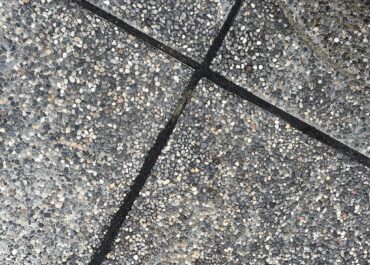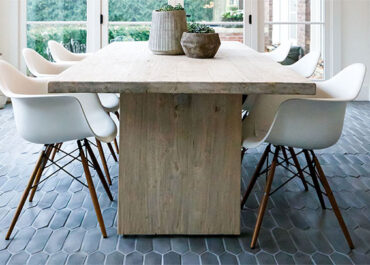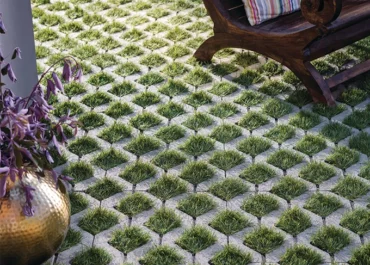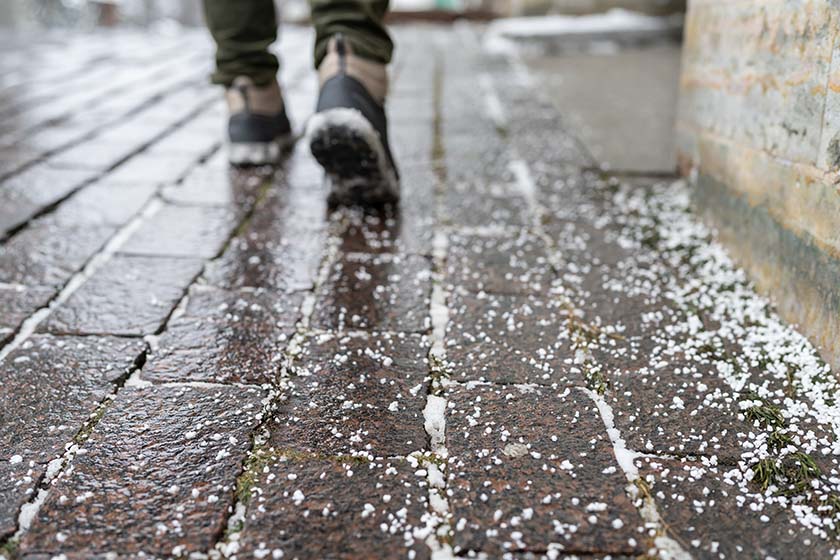
Every homeowner up north knows the deal: when snow comes, it’s time to wake up early in the morning and melt the ice that settled overnight. Regarding outdoor driveways in particular, the constant job of cleaning up is quite tiresome, which leads many people to look for quicker methods to open up their doorstep. As such, a common solution to this problem comes in the form of commercial products like sodium and calcium chloride – both used on a daily basis during winter to allow for safe traffic of vehicles. With that said, can you use calcium chloride on pavers, though?
To find out the answer to that, keep reading this brief article. Or, in case you need a complete guide on how to clean dirty pavers all year long, click here.
So, can you use calcium chloride on pavers?
Yes, you absolutely can use calcium chloride on your pavers. In fact, it’s recommended you do so.
It’s evident how dangerous (let alone unpractical) thawed pavers are. Be it the backyard patio or the front door pathway, letting the snow sit around your home is never a good idea, no matter how busy the household is. Not cleaning up your pavers means that the snow will turn into ice and then into water, which in the end leaves you with a dirty mess of mud that can stain your floor and make people slip.
In other words, even if there’s no urgency in creating a safe passage for your car, it’s important to take care of your pavers and preserve their durability. For that, among other products we’ll go over in a bit, you can use calcium chloride with no problem whatsoever.
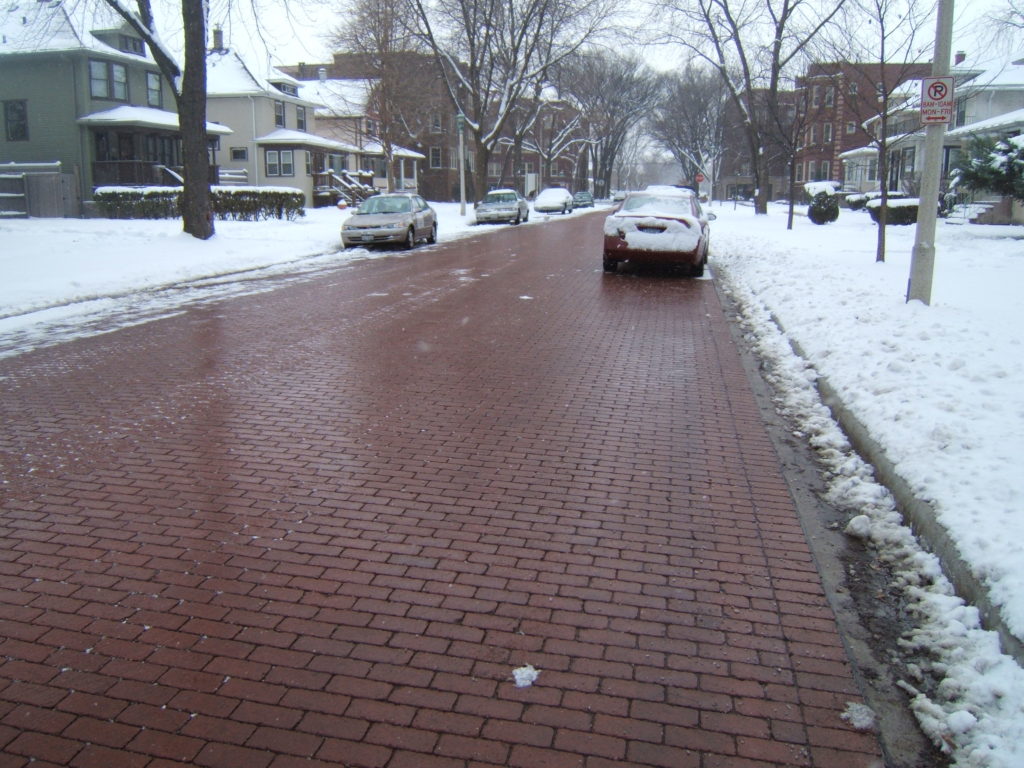
How to use calcium chloride correctly
Unlike poured concrete, most pavers are manufactured to a very high compressive strength and can last for decades under due care. However, that doesn’t mean they have infinite resistance, so be mindful when using these corrosive substances.
The trick here is to apply it in layers, not excessively. Apply a thin layer before a storm, then another light layer when the snow has not yet ceased completely. As soon as possible, rinse off the pavers with warm water to get rid of any salt and brine left on the surface. In most cases, this should be enough.
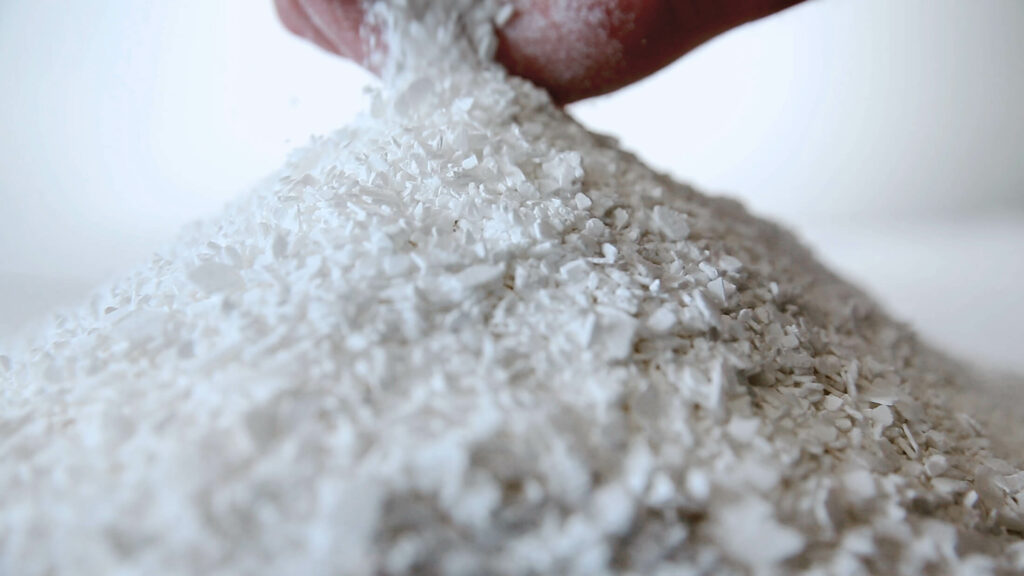
For future reference, some of our trusted products include: Fusion Melt, EnvironMelt, and Majestic Snow.
Read as well: Can You Install Pavers in the Winter?
Alternative ice-melting solutions
Although physical snow removal has its perks over chemical methods (if you don’t have a shovel yet, go to your nearest hardware store and thank yourself later), there are other viable options you can choose. Take a look at the list below:
- Calcium Magnesium Acetate (CMA): just like calcium chloride, but this one is coated with a magnesium deicer. It shares similar properties with vinegar, being a natural acid about as corrosive as tap water.
- Safe Step Sure Paws: pet-friendly and fast-acting. It’s perfect for paths on which your four-legged friend walks, given that it doesn’t irritate skin or paws.
- Ecotraction Ice Grip: a non-toxic and green-colored volcanic mineral. Safe to the touch, the highlight is that it releases minerals back into the soil, helping your plants stay healthy.
But what about rock salt?
Sodium chloride – commercially known as rock salt – is not a good ice-melting option here. It is cheap and universally used, sure, but its harsh corrosives are bad news when it comes to pavers. Over time, this substance will get stuck in between the paving stones, re-freezing its interiors and slowly cracking them.
You see, rock salt not only damages your pavers, but nearby vegetation as well – which dies when in direct contact with such abrasives. Like it or not, a full maintenance will probably be required sooner than you expect, so avoid using it at all costs.
Either way, sealing your pavers afterwards is always worth considering. This serves as an extra layer of protection against outside conditions, extending the lifetime of your project by years. Consult a professional team to learn all about this!
You can count on Eagle Pavers!
Yes, we know Florida is not a snowy state – but sometimes your pavers need a little care. When you take into account how equally harmful hot climates can be to an outdoor patio, cleaning and sealing services might come in handy.
If you live near Sarasota, why not contact our hardscape experts as soon as possible? You can get a free quote on anything your project needs! We’ll be waiting for you.
Speaking of hot climates, you might also like to find out: Are There Pool Pavers That Don’t Get Hot?


